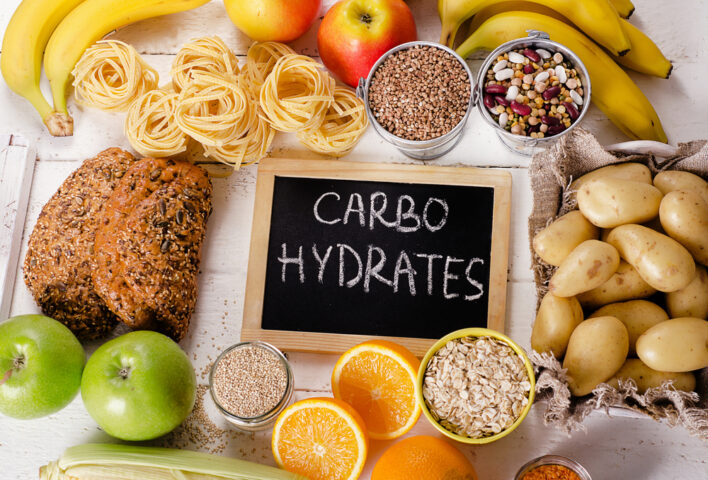Ask the Dietitian: Carbohydrates
Do carbs deserve their often negative reputation? Registered dietitian Rachael Hunter takes a closer look.

What are they?
Most people have an opinion on carbohydrates, and most of us will know at least one person who is trying to ‘cut the carbs’. But do they deserve this often negative reputation?
Let’s start with what carbohydrate actually is. The foods that often come to mind are bread, rice, pasta, potatoes, and breakfast cereals: these are all starchy carbohydrates. However, technically, foods containing natural sugars are ‘carbohydrate containing foods’, e.g. fruits, milk and yoghurts, and foods containing ‘free sugars’ can also be classed as containing carbohydrate. These are foods with added sugar in, for example sweets, cakes and biscuits.
The key theme with a carbohydrate is that it can be broken down into glucose which our bodies then use as fuel. However, not all carbohydrates are equally as nutritious for us. The advice for most of us is to reduce the amount of foods that have high amounts of ‘free sugars’ in, and we should be trying to have more carbohydrate foods that are high in fibre.
Fibre
Studies have shown that high fibre diets have long-term benefits such as reducing the risk of a number of diseases including type 2 diabetes, some cancers and heart disease, as well as short-term benefits including boosting our immunity and improving constipation.
Adults should be aiming for around 30g of fibre a day. In the UK on average, we are only managing around 18g, so there is definitely room for improvement! As with any dietary change, it is a good idea to start with a small change and gradually build on it. If we suddenly double our fibre intake we are more likely to experience bloating and gas, so slow is the way to go. As we increase fibre, it is also important to make sure we are drinking enough fluid to prevent constipation.
Some ways to increase the fibre in our diet include:
- Choose wholemeal and wholegrain versions of foods like pasta, bread and breakfast cereals
- Where possible, leave the skin on fruits and vegetables as these are a great source of fibre. We should also aim for our five portions of fruit and vegetables a day.
- Adding in some nuts and seeds to meals and snacks, e.g. some seeds on our porridge in the morning, and eating a small handful of almonds as an afternoon snack.
Do carbs cause weight gain?
Having too much of any food can lead to weight gain, and carbohydrates do not promote weight gain any more than fats and proteins. In nutrition we often use the magic word ‘moderation’, which essentially means trying to following healthy portion sizes. For starchy carbohydrates, the guide portion size is about the size of our fist. If we regularly have double or triple this size, there is a chance that this will lead to weight gain. Carbohydrates make up an essential part of the diet, and it is important to not cut out any single food group to try and control weight.
Carbohydrates are an important source of energy for our body, but they are not all created equally. High-fibre varieties of starchy carbohydrates can provide us with additional nutritional benefits, and most of us should be aiming to gradually increase the amount of fibre we eat. In my opinion, carbohydrates don’t deserve the negative reputation they sometimes have, and they are a key part of a healthy balanced diet.
